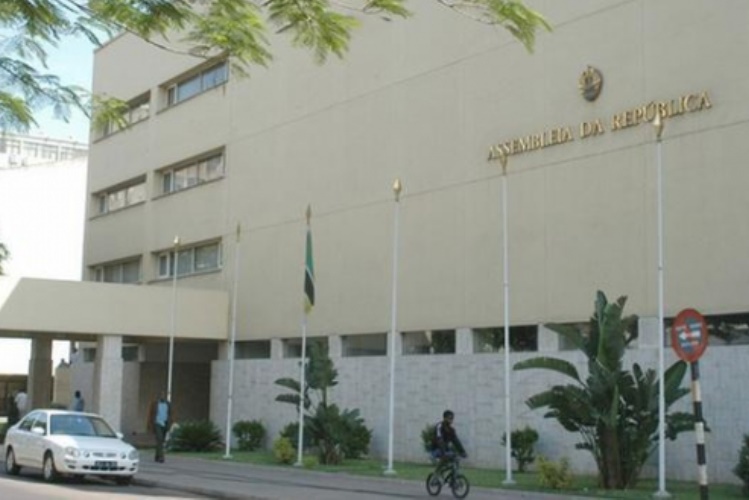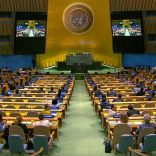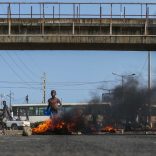Mozambique: Portuguese ambassador calls for deeper trade ties
Parliament at loggerheads over decentralisation: Plenary session postponed – Mozambique

File photo: Folha de Maputo
Disagreements over the powers to be invested in the provincial governor-elect and the Secretary of State have forced parliament to postpone today’s plenary session until next week. A Renamo request for the discussion in plenary of some articles of the laws on decentralised governance is at issue.
Parliament, through the MPs of the three parliamentary parties, recently passed two legal instruments on decentralised governance by consensus. These are the draft laws of the State Representation Services in the Province and of Election of the President of the Republic and of the Deputies of the Assembly of the Republic.
The legal instruments approved form part of the various laws on decentralised governance submitted by the government supposed to come into force before the general elections on October 15, and applied for the first time in the country’s history. Under these rules, provincial governors to be elected will be the head of list of the political party or coalition or group of citizens that wins the vote in each constituency.
Last week, the Assembly of the Republic proposed the introduction of a new article in the Law of State Representation Services in the Province, which in practice means granting more powers to the Secretary of State. The proposed article states that “The attributions and powers of the Provincial Governor, provided for in the Law of Local Organs of the State, are transiently exercised by the Secretary of State in the Province until the holding of the Elections of District Assemblies”.
The plenary began its work today and, among several agenda items, it was intended to approve the draft laws mentioned above.
Being in disagreement with the instruments in question, since it believes that some of their articles do not meet what had been agreed, Renamo’s parliamentary committee sent requests for the plenary to call back Article 52 of the expert’s report on the proposed Organisation and Operation Law of the Provincial Assembly and Article 8 of the Draft Report on the Revision of Law No. 8/2013 of February 27, amended and republished by Law number 12/2014 of April 23, which establishes the Legal Framework for Election of the President of the Republic and of the Deputies of the Assembly of the Republic.
In this last law, Article 8 (Jurisdiction), it is stated that “It is the responsibility of the District or City Judicial Courts to review, in the first instance, electoral appeals, from the period of voter registration to the validation and proclamation of electoral results by the Constitutional Council.” Given that it considers that this article does allow the damaged party to participate directly in the process, Renamo wants to propose the introduction of a number 2 in this article, which would have the following wording: “For the purposes of this law, which is referred to in the preceding paragraph, a trial session of the [electoral] appeal is to be held with the presence of the interested parties.”
Renamo also considers that analysing and approving in the specialty the above mentioned laws and particularly the introduction of this article 38 of the proposed Law of the State Representation Services in the Province would violate Article 276 of the Constitution of the Republic which establishes the attributions of decentralised governance. For example, Article 1 says that decentralised governance exercises functions in areas such as primary health care; primary education, general education and basic technical vocational training and rural and community development.
Renamo goes further and says that the Secretary of State is to have the power to exercise [only] the functions of sovereignty and which are exclusive to the state in the province.
Since parliament’s proposal in this respect is unconstitutional, the second-largest group in parliament yesterday called for its repeal.
“We think that this is an opportune moment to analyse these instruments so as not to allow them to leave the house of the people [parliament] as they are, and it was in this sense that we asked for a call-back of the document by the plenary,” Renamo’s Antonio Muchanga said.
The MDM recognises that the generally adopted laws and the amendment of the Constitution of the Republic have some shortcomings still to be remedied, while Frelimo appeals from calm.
President of the First Commission Edson Macuácua did not wish to go into details on the subject.
In order to allow the parliamentary benches to articulate their positions and enable the consensus reached, the plenary session initially scheduled for today was postponed to next week.
By José Macamo












Leave a Reply
Be the First to Comment!
You must be logged in to post a comment.
You must be logged in to post a comment.